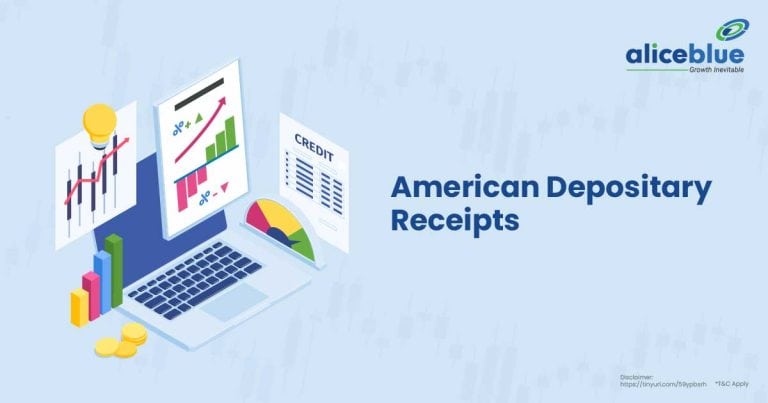The below table shows a list of top-performing corporate Bond Funds in 5 Years based on AUM, NAV and minimum SIP.
| Name | AUM (Cr) | NAV (Rs) | Minimum SIP (Rs) |
| HDFC Corp Bond Fund | 29726.31 | 30.92 | 5000 |
| ICICI Pru Corp Bond Fund | 27056.37 | 29.07 | 100 |
| Aditya Birla SL Corp Bond Fund | 20005.55 | 106.79 | 100 |
| Kotak Corporate Bond Fund | 13275.17 | 3656.96 | 100 |
| HSBC Corporate Bond Fund | 5965.7 | 72.27 | 1500 |
| Axis Corp Debt Fund | 5511.39 | 16.73 | 12000 |
| UTI Corporate Bond Fund | 3723.82 | 15.56 | 100 |
| Nippon India Corp Bond Fund | 3246.69 | 58.3 | 100 |
| Sundaram Corp Bond Fund | 710.05 | 38.61 | 1000 |
| PGIM India Corp Bond Fund | 97.11 | 44.59 | 1000 |

Introduction to Top Performing Corporate Bond Funds in 5 Years
HDFC Corporate Bond Fund
HDFC Corporate Bond Fund is a Corporate Bond mutual fund scheme from HDFC Mutual Fund. This fund has been in existence for 11 years and 8 months, having been launched on January 1, 2013.
HDFC Corporate Bond Fund is categorized under Corporate Bond Fund with an AUM of ₹29,726.31 Crores, a 5-year CAGR of 7.1%, no exit load and an expense ratio of 0.36%. SEBI rates the risk as Moderate. The asset allocation includes 0.06% in Secured Debt, 0.25% in Cash & Equivalents, 3.42% in Government Securities and 70.62% in Corporate Debt.
ICICI Prudential Corporate Bond Fund
ICICI Prudential Corporate Bond Fund is a Corporate Bond mutual fund scheme from ICICI Prudential Mutual Fund. This fund has been in existence for 11 years and 7 months, having been launched on January 1, 2013.
ICICI Pru Corporate Bond Fund is categorized under Corporate Bond Fund with an AUM of ₹27,056.37 Crores, a 5-year CAGR of 7.26%, no exit load and an expense ratio of 0.35%. SEBI rates the risk as Moderate. The asset allocation includes 0.05% in Certificates of Deposit, 0.23% in Cash & Equivalents, 1.57% in Government Securities and 73.92% in Corporate Debt.
Aditya Birla Sun Life Corporate Bond Fund
Aditya Birla Sun Life Corporate Bond Fund is a Corporate Bond mutual fund scheme from Aditya Birla Sun Life Mutual Fund. This fund has been in existence for 11 years and 8 months, having been launched on January 1, 2013.
Aditya Birla SL Corporate Bond Fund is categorized under Corporate Bond Fund with an AUM of ₹20,005.55 Crores, a 5-year CAGR of 7.25%, no exit load and an expense ratio of 0.34%. SEBI rates the risk as Moderate. The asset allocation includes 0.25% in Secured Debt, 0.62% in Floating-rate Debt, 2.93% in Cash & Equivalents and 64.22% in Corporate Debt.
Kotak Corporate Bond Fund
Kotak Corporate Bond Fund is a Corporate Bond mutual fund scheme from Kotak Mahindra Mutual Fund. This fund has been in existence for 11 years and 8 months, having been launched on January 1, 2013.
Kotak Corporate Bond Fund is categorized under Corporate Bond Fund with an AUM of ₹13,275.17 Crores, a 5-year CAGR of 6.79%, no exit load and an expense ratio of 0.34%. SEBI rates the risk as Moderate. The asset allocation includes 0.24% in Secured Debt, 1.45% in Cash & Equivalents, 2.81% in Government Securities and 66.02% in Corporate Debt.
HSBC Corporate Bond Fund
HSBC Corporate Bond Fund is a Corporate Bond mutual fund scheme from HSBC Mutual Fund. This fund has been in existence for 11 years and 8 months, having been launched on January 1, 2013.
HSBC Corporate Bond Fund is categorized under Corporate Bond Fund with an AUM of ₹5,965.7 Crores, a 5-year CAGR of 6.82%, no exit load and an expense ratio of 0.3%. SEBI rates the risk as Moderate. The asset allocation includes 0.07% in Cash & Equivalents, 0.30% in Government Securities and 79.61% in Corporate Debt.
Axis Corporate Debt Fund
Axis Corporate Debt Fund is a Corporate Bond mutual fund scheme from Axis Mutual Fund. This fund has been in existence for 7 years and 2 months, having been launched on June 23, 2017.
Axis Corporate Debt Fund is categorized under Corporate Bond Fund with an AUM of ₹5,511.39 Crores, a 5-year CAGR of 7.47%, no exit load and an expense ratio of 0.3%. SEBI rates the risk as Moderate. The asset allocation includes 0.02% in Floating-rate Debt, 0.24% in Cash & Equivalents, 0.87% in Government Securities and 67.60% in Corporate Debt.
UTI Corporate Bond Fund
UTI Corporate Bond Fund is a Corporate Bond mutual fund scheme from UTI Mutual Fund. This fund has been in existence for 6 years and 1 month, having been launched on July 23, 2018.
UTI Corporate Bond Fund is categorized under Corporate Bond Fund with an AUM of ₹3,723.82 Crores, a 5-year CAGR of 6.95%, no exit load and an expense ratio of 0.29%. SEBI rates the risk as Moderate. The asset allocation includes 0.24% in Cash & Equivalents, 3.34% in Government Securities and 69.50% in Corporate Debt.
Nippon India Corporate Bond Fund
Nippon India Corporate Bond Fund is a Corporate Bond mutual fund scheme from Nippon India Mutual Fund. This fund has been in existence for 11 years and 8 months, having been launched on January 1, 2013.
Nippon India Corporate Bond Fund is categorized under Corporate Bond Fund with an AUM of ₹3,246.69 Crores, a 5-year CAGR of 7.12%, no exit load and an expense ratio of 0.35%. SEBI rates the risk as Moderate. The asset allocation includes 0.00% in Futures & Options, 0.24% in Cash & Equivalents, 4.56% in Government Securities and 69.25% in Corporate Debt.
Sundaram Corporate Bond Fund
Sundaram Corporate Bond Fund is a Corporate Bond mutual fund scheme from Sundaram Mutual Fund. This fund has been in existence for 11 years and 3 months, having been launched on May 13, 2013.
Sundaram Corporate Bond Fund is categorized under Corporate Bond Fund with an AUM of ₹710.05 Crores, a 5-year CAGR of 6.75%, no exit load and an expense ratio of 0.32%. SEBI rates the risk as Moderate. The asset allocation includes 0.38% in Cash & Equivalents, 3.20% in Government Securities and 70.33% in Corporate Debt.
PGIM India Corporate Bond Fund
PGIM India Corporate Bond Fund is a Corporate Bond mutual fund scheme from PGIM India Mutual Fund. This fund has been in existence for 11 years and 8 months, having been launched on January 1, 2013.
PGIM India Corporate Bond Fund is categorized under Corporate Bond Fund with an AUM of ₹97.11 Crores, a 5-year CAGR of 6.88%, no exit load and an expense ratio of 0.29%. SEBI rates the risk as Moderate. The asset allocation includes 0.36% in Cash & Equivalents, 4.48% in Government Securities and 70.15% in Corporate Debt.
What Are Corporate Bond Funds?
Corporate Bond Funds are debt mutual funds that primarily invest in fixed-income securities issued by corporations. These funds aim to provide investors with regular income and capital appreciation by investing in a diversified portfolio of corporate bonds with varying credit ratings and maturities.
These funds typically invest in bonds issued by companies across different sectors and industries. The fund managers analyze the creditworthiness of the issuers and select bonds based on their yield, maturity and risk profile.
Corporate Bond Funds can offer potentially higher returns compared to government bond funds, but they also carry higher credit risk. They are suitable for investors seeking regular income and moderate capital appreciation with a medium to long-term investment horizon.
Features Of Top Performing Corporate Bond Funds in 5 Years
The main features of top-performing Corporate Bond Funds in 5 years include higher yield potential, diversified portfolio, professional management and moderate risk profile. These funds aim to provide investors with regular income and capital appreciation through corporate bond investments.
- Higher yield potential: Corporate Bond Funds typically offer higher yields compared to government bond funds, as corporate bonds generally provide higher interest rates to compensate for the additional credit risk.
- Diversified portfolio: These funds invest in bonds issued by various companies across different sectors, helping to spread credit risk and potentially enhance overall returns.
- Professional management: Experienced fund managers analyze credit quality, interest rate trends and market conditions to optimize the portfolio for better risk-adjusted returns.
- Moderate risk profile: While riskier than government bond funds, Corporate Bond Funds generally have a moderate risk profile compared to equity funds or high-yield bond funds.
Best Performing Corporate Bond Funds in 5 Years
The table below shows the Best Performing Corporate Bond Funds in 5 Years based on the lowest to highest expense ratio.
| Name | Expense Ratio (%) | Minimum SIP (Rs) |
| UTI Corporate Bond Fund | 0.29 | 100 |
| PGIM India Corp Bond Fund | 0.29 | 1000 |
| HSBC Corporate Bond Fund | 0.3 | 1500 |
| Axis Corp Debt Fund | 0.3 | 12000 |
| Sundaram Corp Bond Fund | 0.32 | 1000 |
| Aditya Birla SL Corp Bond Fund | 0.34 | 100 |
| Kotak Corporate Bond Fund | 0.34 | 100 |
| ICICI Pru Corp Bond Fund | 0.35 | 100 |
| Nippon India Corp Bond Fund | 0.35 | 100 |
| HDFC Corp Bond Fund | 0.36 | 5000 |
Top Performing Corporate Bond Funds in 5 Years In India
The table below shows the top-performing corporate Bond Funds in 5 Years In India Based on the Highest 3Y CAGR.
| Name | CAGR 3Y (Cr) | Minimum SIP (Rs) |
| ICICI Pru Corp Bond Fund | 6.56 | 100 |
| Nippon India Corp Bond Fund | 6.49 | 100 |
| Axis Corp Debt Fund | 6.34 | 12000 |
| Aditya Birla SL Corp Bond Fund | 6.21 | 100 |
| HDFC Corp Bond Fund | 6.12 | 5000 |
| Kotak Corporate Bond Fund | 6.1 | 100 |
| PGIM India Corp Bond Fund | 5.93 | 1000 |
| UTI Corporate Bond Fund | 5.8 | 100 |
| HSBC Corporate Bond Fund | 5.72 | 1500 |
| Sundaram Corp Bond Fund | 5.54 | 1000 |
Top Performing Corporate Bond Funds in 5 Years List
The table below shows the Top Performing Corporate Bond Funds in the 5 Years List based on exit load, i.e., the fee that the AMC charges investors when they exit or redeem their fund units.
| Name | AMC | Exit Load (%) |
| ICICI Pru Corp Bond Fund | ICICI Prudential Asset Management Company Limited | 0 |
| Nippon India Corp Bond Fund | Nippon Life India Asset Management Limited | 0 |
| Axis Corp Debt Fund | Axis Asset Management Company Ltd. | 0 |
| Aditya Birla SL Corp Bond Fund | Aditya Birla Sun Life AMC Limited | 0 |
| HDFC Corp Bond Fund | HDFC Asset Management Company Limited | 0 |
| Kotak Corporate Bond Fund | Kotak Mahindra Asset Management Company Limited | 0 |
| PGIM India Corp Bond Fund | PGIM India Asset Management Private Limited | 0 |
| UTI Corporate Bond Fund | UTI Asset Management Company Private Limited | 0 |
| HSBC Corporate Bond Fund | HSBC Global Asset Management (India) Private Limited | 0 |
| Sundaram Corp Bond Fund | Sundaram Asset Management Company Limited | 0 |
Factors To Consider When Investing In Top Performing Corporate Bond Funds in 5 Years
The main factors to consider when investing in top-performing Corporate Bond Funds in 5 years include credit quality, yield to maturity, interest rate sensitivity, expense ratio and fund manager’s expertise. These factors can significantly impact the fund’s performance and suitability for your portfolio.
- Credit quality: Assess the fund’s portfolio composition and the credit ratings of its holdings. Higher credit quality generally implies lower risk but may offer slightly lower yields.
- Yield to maturity (YTM): Compare the YTM of different funds. A higher YTM indicates potential for better returns, but also consider the associated risks and the fund’s expense ratio.
- Interest rate sensitivity: Evaluate the fund’s duration, which indicates its sensitivity to interest rate changes. Longer-duration funds are more sensitive to rate fluctuations.
- Expense ratio: Look for funds with lower expense ratios, as these costs directly impact your returns. However, also consider the fund’s performance and strategy alongside costs.
- Fund manager’s expertise: Evaluate the fund manager’s experience and track record in managing corporate bond funds. Their ability to navigate credit and interest rate risks is crucial.
How To Invest In Top Performing Corporate Bond Funds in 5 Years?
To invest in top-performing Corporate Bond Funds in 5 years, start by researching and comparing different funds based on their performance, credit quality and expense ratios. Once you’ve selected a fund that aligns with your financial goals and risk tolerance, you can invest through Alice Blue.
Alice Blue is a user-friendly online investment platform that provides tools and resources to help you make informed investment decisions. You can choose to invest a lump sum amount or opt for a Systematic Investment Plan (SIP), which allows you to invest a fixed amount regularly.
For most investors, a SIP is recommended as it helps in rupee cost averaging and reduces the impact of market volatility on your investment over time. Remember to review and rebalance your investment periodically to ensure it remains aligned with your financial goals.
Advantages Of Investing In Top Performing Corporate Bond Funds in 5 Years
The main advantages of investing in top-performing Corporate Bond Funds in 5 years include the potential for higher returns, regular income, portfolio diversification and professional management. These funds offer a balance between yield and stability for investors seeking fixed-income exposure.
- Higher return potential: Corporate Bond Funds typically offer higher yields compared to government bond funds, potentially leading to better overall returns.
- Regular income: These funds aim to provide steady income through interest payments from the underlying corporate bonds, making them suitable for income-seeking investors.
- Portfolio diversification: Corporate Bond Funds invest in a range of companies across various sectors, helping to spread credit risk and potentially enhance overall portfolio returns.
- Professional management: Experienced fund managers analyze credit risks, interest rate trends and market conditions to optimize the portfolio for better risk-adjusted returns.
Risks Of Investing In Top Performing Corporate Bond Funds in 5 Years
The main risks of investing in top-performing Corporate Bond Funds in 5 years include credit risk, interest rate risk, liquidity risk and concentration risk. While these funds generally have a moderate risk profile, investors should be aware of potential factors that can impact returns.
- Credit risk: There’s a risk that bond issuers may default on their payments or face credit rating downgrades, which can negatively impact the fund’s performance.
- Interest rate risk: Changes in interest rates can affect bond prices. Rising rates generally lead to a decline in bond prices, potentially causing capital losses.
- Liquidity risk: Corporate bonds may be less liquid than government bonds, potentially affecting the fund’s ability to buy or sell securities at desired prices.
- Concentration risk: Some funds may have higher exposure to certain sectors or companies, which can impact performance if these specific areas underperform.
Importance of Corporate Bond Funds
The main importance of Corporate Bond Funds lies in their ability to offer higher yields than government bonds, provide regular income, contribute to portfolio diversification and offer exposure to corporate credit markets. These funds play a crucial role in many investors’ fixed-income portfolios.
- Higher yield potential: Corporate Bond Funds typically offer higher yields compared to government bond funds, potentially leading to better overall returns for investors seeking fixed-income exposure.
- Regular income stream: These funds aim to provide steady income through interest payments from corporate bonds, making them suitable for investors seeking regular cash flows.
- Portfolio diversification: Including Corporate Bond Funds in an investment portfolio can help balance overall risk, especially when combined with other asset classes like equities and government bonds.
- Corporate credit exposure: These funds provide investors with access to the corporate credit market, allowing them to benefit from the growth and stability of established companies.
How Long to Stay Invested in Corporate Bond Funds?
The ideal investment horizon for Corporate Bond Funds typically ranges from 3 to 5 years or longer. This timeframe allows investors to potentially benefit from the higher yields offered by corporate bonds while managing interest rates and credit risks effectively.
However, the exact duration can vary based on individual financial goals and market conditions. Some investors may choose to hold these funds for longer periods as part of their core fixed-income allocation. Regular review of your investment is important to ensure it aligns with your financial objectives and risk tolerance.
Tax Implications of Investing in Corporate Bond Funds
Corporate Bond Funds are taxed as debt mutual funds in India. For holding periods up to 3 years, gains are considered short-term capital gains and taxed at the investor’s income tax slab rate. For holding periods over 3 years, gains are treated as long-term capital gains.
Long-term capital gains from Corporate Bond Funds are taxed at 20% with indexation benefits. Indexation adjusts the purchase price for inflation, potentially reducing the tax liability. This tax treatment can make Corporate Bond Funds more tax-efficient for periods over 3 years compared to fixed deposits.
Future of Corporate Bond Funds
The future of Corporate Bond Funds in India looks promising, driven by factors such as growing corporate bond markets, increasing financialization of savings and the need for diversified fixed-income options. As the Indian economy evolves and the corporate bond market deepens, these funds are likely to play an increasingly important role in investors’ portfolios.
However, their performance will continue to be influenced by factors such as interest rate movements, credit market conditions and overall economic growth. Innovations in fund management strategies and the development of the corporate bond market could further enhance the appeal of Corporate Bond Funds in the coming years.

Top Performing Corporate Bond Funds in 5 Years – FAQs
Corporate Bond Funds are mutual funds that primarily invest in high-rated corporate bonds, typically rated AA and above. These funds aim to provide regular income by investing in relatively stable and creditworthy companies, offering better returns than government securities while maintaining moderate risk.
Top Performing Corporate Bond Funds in 5 Years #1: HDFC Corp Bond Fund
Top Performing Corporate Bond Funds in 5 Years #2: ICICI Pru Corp Bond Fund
Top Performing Corporate Bond Funds in 5 Years #3: Aditya Birla SL Corp Bond Fund
Top Performing Corporate Bond Funds in 5 Years #4: Kotak Corporate Bond Fund
Top Performing Corporate Bond Funds in 5 Years #5: HSBC Corporate Bond Fund
These funds are listed based on the Highest AUM.
The best-performing corporate bond funds based on expense ratio in the past 5 years are UTI Corporate Bond Fund, PGIM India Corp Bond Fund, HSBC Corporate Bond Fund, Axis Corp Debt Fund and Sundaram Corp Bond Fund. These funds offer moderate risk with efficient expense ratios, making them attractive options for investors.
The top performing corporate bond funds based on 3-year CAGR over the past 5 years are ICICI Pru Corp Bond Fund, Nippon India Corp Bond Fund, Axis Corp Debt Fund, Aditya Birla SL Corp Bond Fund and HDFC Corp Bond Fund. These funds have consistently delivered solid returns for investors.
Investing in top-performing Corporate Bond Funds can be good for investors seeking higher yields than government bonds with moderate risk. They offer the potential for regular income and capital appreciation. However, consider your investment goals, risk tolerance and overall portfolio allocation before investing.
Yes, you can buy top-performing Corporate Bond Funds through various online platforms like Alice Blue or directly from fund houses. These funds are typically open-ended, allowing purchases on any business day. Consider your investment goals and risk tolerance before investing.
We hope you’re clear on the topic, but there’s more to explore in stocks, commodities, mutual funds, and related areas. Here are important topics to learn about.
Disclaimer: The above article is written for educational purposes and the companies’ data mentioned in the article may change with respect to time. The securities quoted are exemplary and are not recommendatory.








